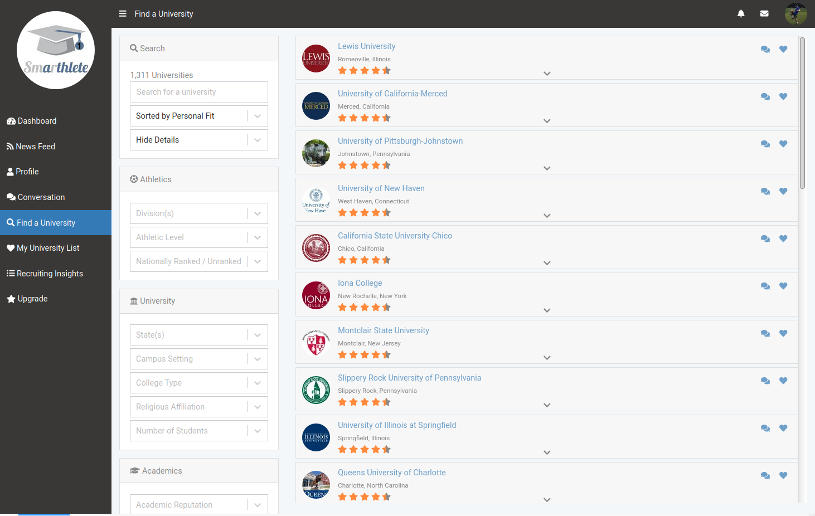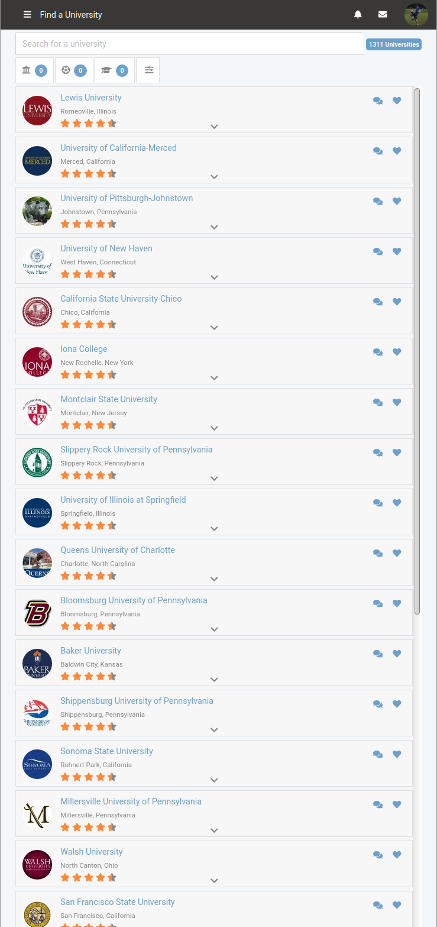Test format
The ACT tests students' readiness for college and is used by the large majority of admissions offices for their internal procedures, admitting first-year applicants. Every student receives an overall composite score of 1 to 36, with the latter being the maximum possible.
The ACT is split in 4 sections and takes a total of 175 minutes (with essay 215 minutes):
- English
- Mathematics
- Reading
- Science
English
The English section focuses on your ability to understand a piece of writing, your knowledge of language as well as English grammar, such as sentence structure, punctuation and word usage. The English section requires you to be an “editor”, revising and editing texts.
The English section takes a total of 45 minutes and includes 75 questions.
Mathematics
The math section tests your ability to solve mathematical problems, in the areas of numbers & quantity, algebra, functions, geometry, statistics & probability. Your ability to integrate all these various skills is also tested by the Mathematics section. Different from the SAT test, you are allowed to use the calculator throughout the entire math section, although it is not wise or recommended to do so. The level tested translates into the level you are expected to know approximately when starting grade 12 in high school.
The Mathematics section takes a total of 60 minutes and includes 60 questions.
Reading
Reading is designed to test your level of reading comprehension at a level you would typically face in your college freshman year. What does the author of a text or passage try to convey? What are the arguments brought forward? Why are certain phrases or words used in exactly this way and what do they mean? And how are opinions constructed and presented? The purpose of this section is to test your capacity to process information; something you will do day in, day out in college.
The Reading section takes a total of 35 minutes and includes 40 questions.
Science
Some people shy away from the ACT, due to the Science section, which is not part of the SAT test. Some basic knowledge may be required or of great help when answering some of the questions. You could feel ill-prepared for the Science portion, but chances are you've taken a number of classes within biology, chemistry, physics or earth sciences, which you would need in order to be NCAA D-I or NCAA D-II eligible by the way (think “NCAA Core Courses”). This section aims at testing your ability to interpret, analyze, and evaluate within natural sciences.
The Science section takes a total of 35 minutes and includes 40 questions.
The description of the above sections may sound scarier than what it actually is. If you've made it all the way to sophomore, junior or senior high, you will find all of the presented problems solvable.


Your Personal Fit
On Smarthlete, your ACT is visible on your recruiting profile & used to calculate your Personal Fit with schools.
ACT Essay
Writing the ACT essay is optional and required by some university admissions offices. During 40 minutes you are asked to deliver your own perspective on the issue presented in relation to some of the other perspectives offered. This is a different approach, compared to the way the SAT Essay is designed and one, which you may find easier or harder, based on your writing preferences.
Because the essay is optional, the different objective of the essay shouldn't be your main concern when deciding between SAT or ACT.
ACT test dates
The ACT test is offered 7 times a year (during a regular academic year, such as 2021-2022).
Because the processing of your results takes about 10 days after test date (add another 2 weeks for the essay), you should make sure you plan carefully when to take the test. Many students want the opportunity to take the test at least a second time during their recruiting process and/or when applying for college.
Bearing in mind the fact that the Regular Signing Period (“National Letter of Intent”) starts in November of your senior year, you do want to take the ACT test in your junior year. More on that in your Recruiting Timeline.
"Unless you are one of the athletes recruited very early on, coaches will be very grateful if you contact them with an official ACT score."
Test preparation
For starters, everything you have done in high school to this point and will continue to do until test date will pay off in one way or the other. On top of this there are a number of useful strategies to prepare for the big day:
ACT website
Before anything else, make yourself familiar with the test format, the various sections, sample questions and test strategies.
You can also find practice tests for download, which is a great way of getting to know what's expected of you: ACT
Third-party preparation / tutors
Considering the importance of the ACT test and its financial implications if you were to receive a better academic scholarship offer, many people look to add private tutors to their team or make use of other preparation tools, such as official ACT products.
A resource we have found to be highly useful is the offering of "Prep Expert". Prep Expert offers different plans, such as 6-week courses, weekend reviews before the big exam day or private sessions. Something else on offer is the "Self-Paced Course", which can be another attractive option to complement your individual study plan without any strings attached.
Some of those plans even come with a "point-improvement guarantee" / "money-back guarantee", which makes such an investment even more attractive.
Whether working with an expert is a smart expense or not is up to the individual to decide, but without doubt, it can quickly lead to another 1,000 dollars here and there in additional academic scholarship money.
First, understand the kind of schools you would like to get recruited by. Second, understand the ACT score range needed to make it happen. Then, decide on how to get there academically.
ACT registration
As soon as you know which ACT test date works for you, sign up for the test on the ACT Website. The ACT currently costs
- 55 USD (add +15 USD with essay) for American students
- 150 USD (add +16.50 USD with essay) for Internationals
Next Read
Read up on the Grade Point Average (GPA), which is a key element of your application at any school.